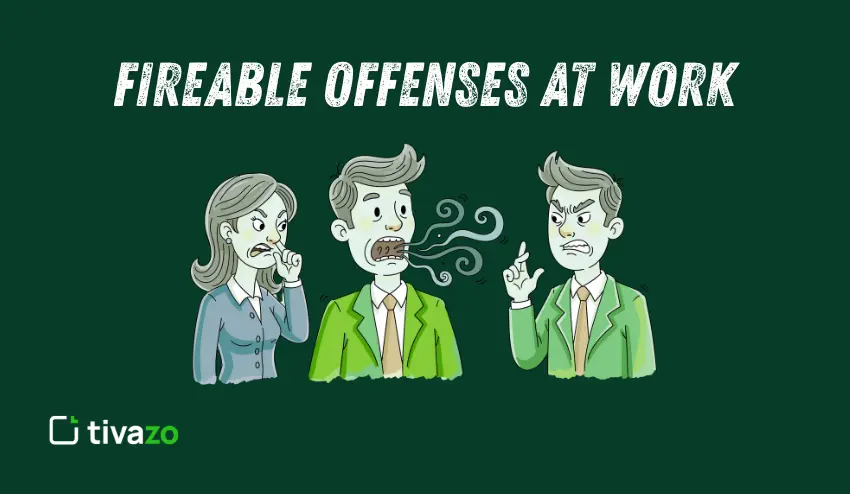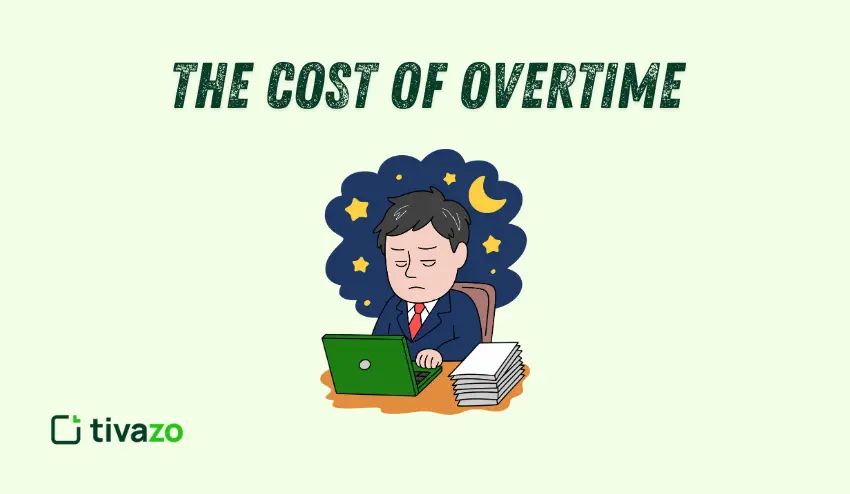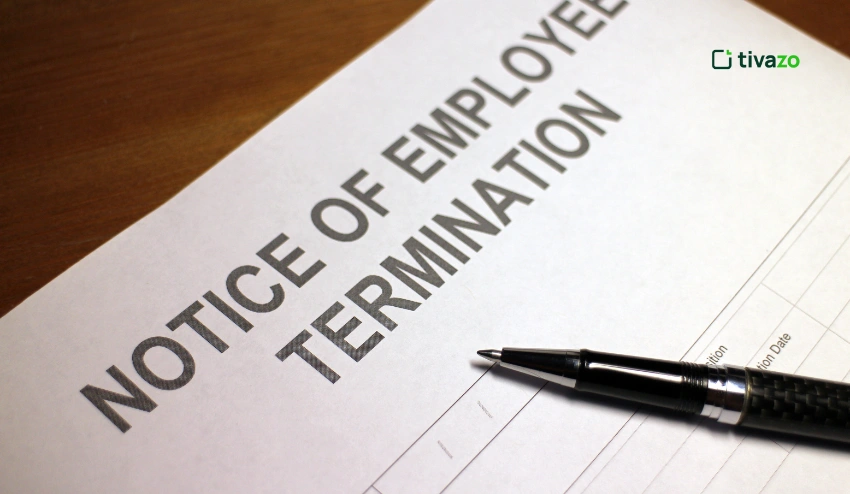As we enter a digital transformation age, the idea of trusting AI feedback is becoming increasingly common across organizations. A new reality is unfolding as AI is changing employee evaluation systems, and many organizations have witnessed professionals who trust AI feedback more than managers’ feedback. Why is this shift taking place? AI-based evaluations are seen as being more trustworthy and desirable than traditional manager-led assessments, but why is this the case?
This blog shares the psychological, technological, and organizational dimensions of this shift and how AI feedback informs new, fair, engaging, and productive workplaces.
Why Employees Trust AI Feedback More Than Being Reviewed by a Manager
Recent studies show that employees report they trusting AI feedback from AI systems more than feedback from other humans: more than 60% of employees trust the data provided by AI systems over human feedback. The reason for this was the objectivity of data, the accuracy of data, and the consistency in providing that data. Employees now see AI systems as unbiased, and for many employees, their feedback may have been biased in some way during typical performance reviews.
When employees trusting AI feedback and decisions from AI more than they trust their managers to evaluate their work, it reflects an employee’s desire for a fairer, clearer performance management evaluation and process.
1. Data Drives Insights, Not Human Perception.
AI collects performance data continuously from outcomes on projects to work patterns, to communication behavior, providing a complete, “whole view” of every employee. Human evaluations involve, at best, observation of behavior in a limited context, making trusting in AI feedback a measure of confidence that evidence will be meaningful and measurable.
| Evaluation Type | Bias Some | Degree of Accuracy | Consistency |
| Manager Feedback | High | Subjective | Some Inconsistency |
| AI Feedback | Low | Data-Driven | Consistent |
Why Do Employees Trust AI Feedback More Than Their Manager’s Feedback?
The reasoning rests on trust and transparency. Employees believe that managers may be biased; these biases could stem from relationships with other employees, favoritism, or unconscious biases. To trust the AI feedback provides impartiality.
2. AI Rids Bias and Promotes Fairness
AI-style tools utilize an algorithm to assess employee performance solely on data inputs about their productivity, frequency of collaboration, goal completions, etc. Data-backed feedback provides trusting AI feedback that one’s work is being valued on merit.
3. Consistency in Assessments
Human Managers can unintentionally provide different feedback based on mood, pressure, and social bias. But with trusted AI feedback, every employee receives the same criteria for assessment, regardless of department or team.
4. Greater Privacy and Less Cause for Anxiety
When the feedback is through an AI system, employees feel more at risk of receiving honest feedback. AI omits the uncomfortable emotions that accompany the seasoned manager’s feedback.
In What Ways Does AI Mitigate Bias From Employee Feedback?
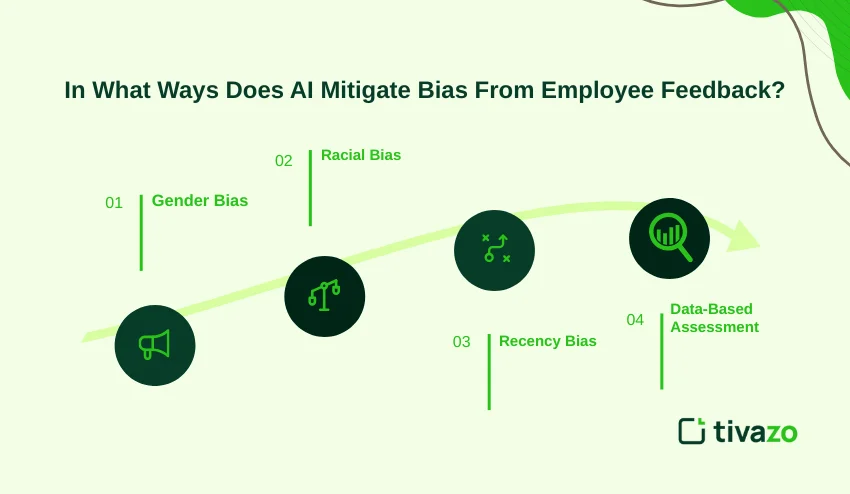
AI leverages quantitative measures such as tasks completed, deadlines achieved, and communication counts, rather than emotional or personal assessments. By doing so, the use of AI or trusting AI feedback creates a less ambiguous path to improvement actions.
| Bias Type | Present in Manager Reviews | Present in AI Feedback |
| Gender Bias | ✅ | ❌ |
| Racial Bias | ✅ | ❌ |
| Recency Bias | ✅ | ❌ |
| Data-Based Assessment | ❌ | ✅ |
AI’s neutrality is likely to create more trusting AI feedback because employees are seeing AI as a fairer, valid approach to evaluation.
Why Do Employees Hesitate to Trust Evaluations from Their Managers?
While managers are the biggest contributors to employee development, there are still factors that influence their trustworthiness, including:
- Favoritism and bias: Employees may feel as though some evaluations are based on the manager’s preference rather than actual performance.
- Inconsistency: Evaluations are based on different standards for different people, which may cause employees to lose trust.
- Limited visibility: Managers may not see all of an employee’s performance.
- Subjectivity: Feedback could be based on a recent performance rather than long-term contributions.
Likewise, employees hesitate to trusting AI feedback evaluations from their managers because of a lack of communication. For example, the feedback might be too vague, too unclear, or even too critical without guidance on next steps. Personal conflicts and differences in working styles could lead to the perception of unfair treatment. Or perhaps a manager does not have the time to provide high-quality, frequent feedback.
In any case, employees may experience a rush anywhere between their evaluation and the resulting feedback, feeling as though they were not reviewed fairly. In conclusion, confidence in an evaluation will usually decrease for employees if managers and employees do not communicate well.
Consequently, employees trusting the feedback provided by AI more than the feedback provided by their manager because AI-based evaluations are fair, transparent, and drawn from validity-based metrics rather than value-based or subjective resolutions.
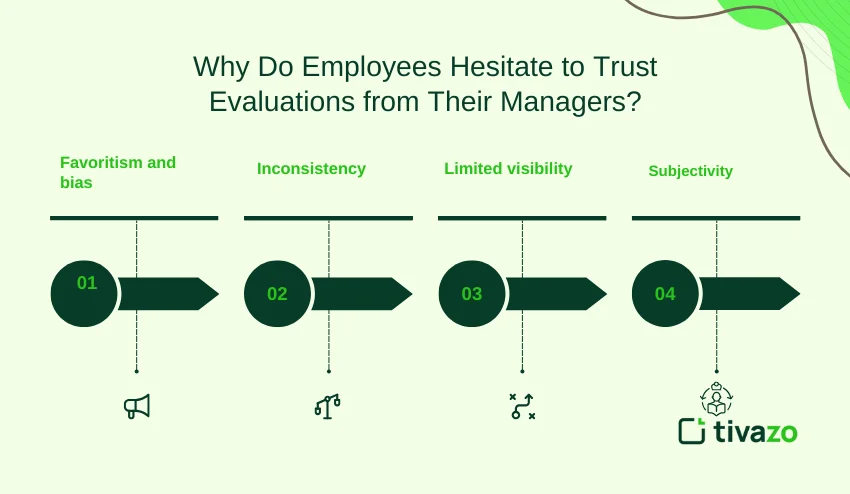
Is AI-Powered feedback a positive step toward workplace equity?
Definitely. If organizations can trust performance evaluations from AI, they will move closer to equitable outcomes for recognition and development. AI frameworks are built to reduce human bias, resulting in fair, measurable recognition of performance.
5. Transparent Evaluation Framework
AI frameworks demonstrate verifiable data and explanations for each score or feedback rubric. Employees have a clear and measurable understanding of how they were ranked or evaluated, creating fairness and accountability.
6. Continuous Feedback in Real Time
Rather than relegating feedback to an annual review, AI allows organizations to generate continuous feedback loops that provide employees with help in measuring their progress. This real-time data creates a growth culture in which employees are comfortable allowing feedback from AI to play a key role.
Can AI Feedback Systems Promote Increased Engagement of Employees?
Yes. Employees typically have a higher engagement and motivation level once they experience a continuously fair and transparent evaluation of their own performance.
7. Calls for Self-Improvement
Trusting AI feedback allows employees to have access to detailed feedback that identifies their behavior patterns and sometimes identifies gaps in their own skills. Feedback from AI is able to promote the feeling of ownership and accountability much more effectively than managers, and this is a primary motive for an employee to trusting AI feedback.
Real Example:
A major technology firm adopted an AI performance evaluation system across the global organization. In 6 months, employee engagement increased by 35% and biased complaints in performance evaluations decreased by over 50%. The data told the story about the trusting AI feedback being beneficial.
Is AI the Future of Employee Evaluations in Organizations?
The answer is definitely yes, trusting AI feedback. As an increasing number of organizations adopt data-driven decision-making, embracing AI feedback will emerge as the basis for evaluating employees. AI systems provide real-time clarity and continuous performance tracking for employees, promoting quicker and more accurate input than traditional annual reviews.
This change also enhances equity by allowing employees to claim ownership over their own learning and development.
Benefits of Utilizing AI in Evaluations:
- Fairness and objectivity
- Transparency of performance
- Bias-free evaluations of performance
- Continuous learning and feedback
- Increased trust and retention
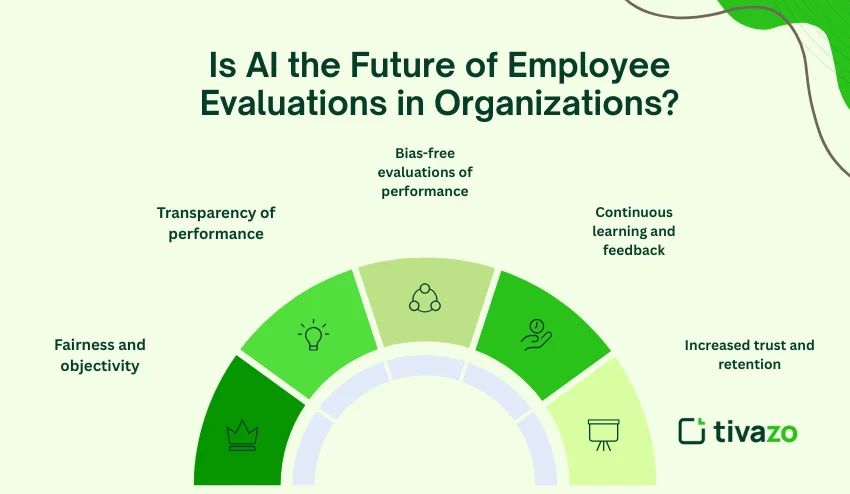
Employees feel more motivated and engaged when they believe their contributions are evaluated fairly, which can help to build an upgraded culture of accountability and continuous performance improvement. Over the next ten years, organizations that employ while trusting AI feedback systems will likely outperform those organizations reliant on manual evaluation.
In addition, trusting AI feedback could indicate trends and patterns that a manager might have missed, such as skill gaps and roadblocks for getting work done. Predictive analytics could also be helpful to diagnose issues before they impact performance.
Challenges and Ethical Issues
There are many advantages to trusting artificial intelligence; however, organizations will also want to mitigate any risks that may arise in order to use the system in an effective and ethical manner.
| Challenge | Solution |
| Data Privacy Issues | Use a strict security policy |
| Algorithmic Bias | Perform regular audits and offer data diversity (using different datasets) |
| Overdependence on Technology | Combine AI technology with human intervention |
| Lack of Empathy & Emotion | Utilize mixed-method approaches with AI and stakeholder input (manager feedback) |
Beyond these possibilities, companies will want to provide employees with transparency into the AI algorithms so there is clarity about how evaluations are being constructed. Educating managers and employees on how to interpret AI insights will be vital to abiding by fairness and transparency, and will be essential to dispel possible bias and misinformation. With new ways of conducting evaluations, organizations will want to ensure that there are no unintended consequences of these efforts. For example, employees might only focus on things that can be measured and ignore other dimensions of their work.
By continuing to balance insights from technology and empathy from a human perspective and assessing the performance of the system over time, organizations can maximize trust, fairness, and engagement in employee evaluations, thereby making trusting AI feedback a viable option for organizations seeking growth in the long term.
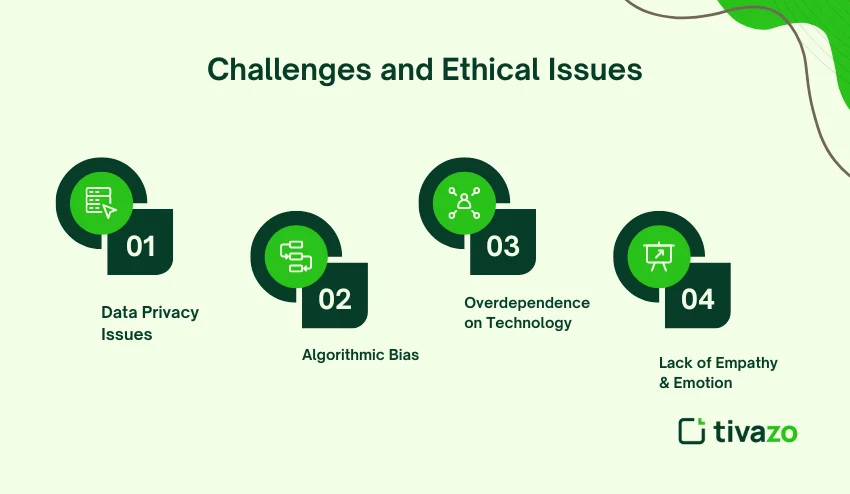
Conclusion
Employees are more confident in trusting AI feedback guidance than human managers because it represents greater transparency, fairness, and objectivity. As workplaces evolve, AI evaluation systems will not replace managers but empower them to make better decisions, grounded in data.
To be clear, organizations implementing trusting AI feedback and performance are not only investing in technology but a more equitable, engaged, and performance-based workforce. Furthermore, the development of an AI system encourages a culture of continuous learning, promotes personal accountability, and helps identify areas of development that might not be visible otherwise, stimulating discretionary effort and ultimately sustainable employee engagement and organizational performance.

